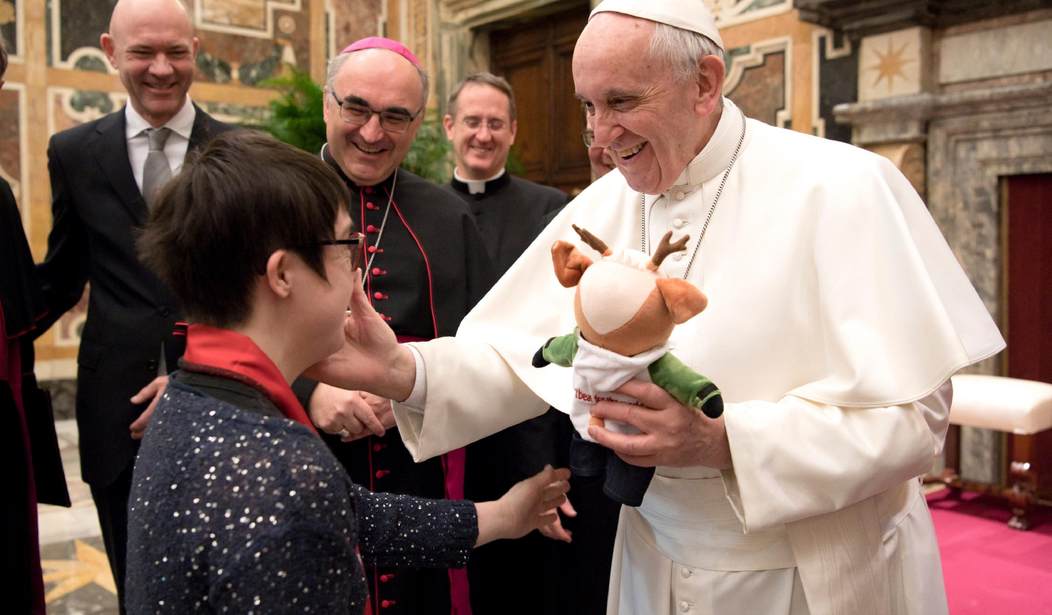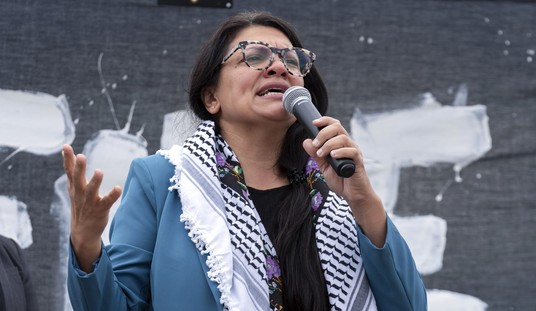Pope Francis cautioned against powers “manipulating fear” toward blame on a “non-neighbor” scapegoat for society’s ills.
The pontiff sent a message to the World Meeting of Popular Movements conference being currently held in Modesto, Calif., a gathering of faith and community leaders organized by the Vatican’s new Dicastery for the Promotion of Integral Human Development, the U.S. Catholic Campaign for Human Development and the National Network of People Improving Communities through Organizing (PICO).
Francis warned against “the processes of dehumanization” that can only be reversed by “people’s involvement and participation” to confront the crisis.
“The grave danger is to disown our neighbors. When we do so, we deny their humanity and our own humanity without realizing it; we deny ourselves, and we deny the most important Commandments of Jesus. Herein lies the danger, the dehumanization. But here we also find an opportunity: that the light of the love of neighbor may illuminate the Earth with its stunning brightness like a lightning bolt in the dark; that it may wake us up and let true humanity burst through with authentic resistance, resilience and persistence,” he said.
The pope cited the lawyer in Gospel of Luke (10:25-37) asking Jesus who qualifies as his “neighbor.”
“Maybe he wants Jesus to excuse us from the obligation of loving pagans or foreigners who at that time were considered unclean. This man wants a clear rule that allows him to classify others as ‘neighbor’ and ‘non-neighbor,’ as those who can become neighbors and those who cannot become neighbors,” Francis said, noting that in Jesus’ response of the Good Samaritan parable the Samaritan “was looked down upon, no one would have counted on him, and in any case he would have had his own commitments and things to do — yet when he saw the injured man, he did not pass by like the other two who were linked to the Temple.”
“All this teaches us that compassion, love, is not a vague sentiment, but rather means taking care of the other to the point of personally paying for him.”
Pope Francis noted that “under the guise of what is politically correct or ideologically fashionable, one looks at those who suffer without touching them.”
“But they are televised live; they are talked about in euphemisms and with apparent tolerance, but nothing is done systematically to heal the social wounds or to confront the structures that leave so many brothers and sisters by the wayside. This hypocritical attitude, so different from that of the Samaritan, manifests an absence of true commitment to humanity,” he continued.
“Sooner or later, the moral blindness of this indifference comes to light, like when a mirage dissipates. The wounds are there, they are a reality. The unemployment is real, the violence is real, the corruption is real, the identity crisis is real, the gutting of democracies is real. The system’s gangrene cannot be whitewashed forever because sooner or later the stench becomes too strong; and when it can no longer be denied, the same power that spawned this state of affairs sets about manipulating fear, insecurity, quarrels, and even people’s justified indignation, in order to shift the responsibility for all these ills onto a ‘non-neighbor.'”
Francis added that he was “not speaking of anyone in particular” but of “a social and political process that flourishes in many parts of the world and poses a grave danger for humanity.”
People must not “classify others in order to see who is a neighbor and who is not,” he stressed.
“You can become neighbor to whomever you meet in need, and you will do so if you have compassion in your heart. That is to say, if you have that capacity to suffer with someone else. You must become a Samaritan. And then also become like the innkeeper at the end of the parable to whom the Samaritan entrusts the person who is suffering,” he said.
There rest the “roots,” Pope Francis said, “of the authentic humanity that resists the dehumanization that wears the livery of indifference, hypocrisy, or intolerance.”









Join the conversation as a VIP Member